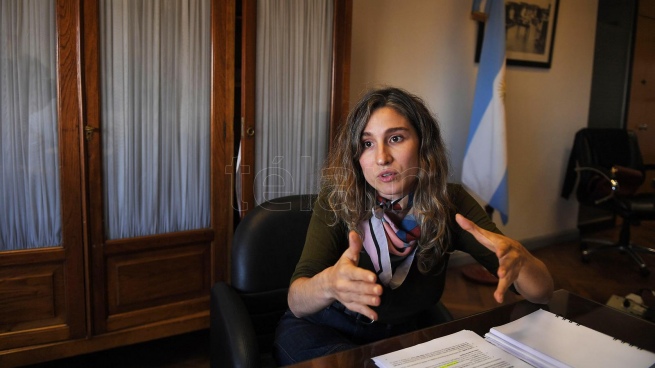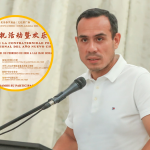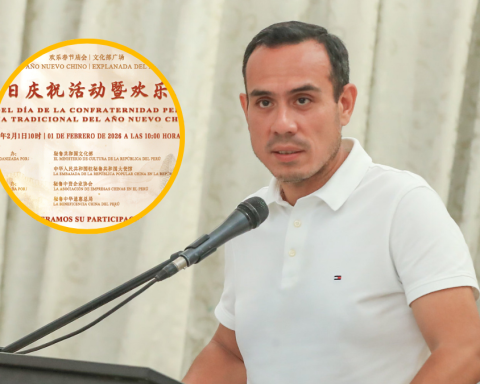The head of the National Directorate of Economy, Equality and Gender, Sol Prieto, highlighted the work carried out by the Ministry of Economy to “make visible not only the place that women have in the world of work, but also show the place that women they have from the redistributive point of view”.
In a report for Télam, Prieto stated that “Argentina, perhaps for the first time in 10 years, is going to grow for three years in a row and we work so that women are the protagonists of that process.”
In a context in which economic activity in Argentina grew 10.3% In 2021, women – who came from a 9.1 point drop in the employment rate at the time of the greatest impact of the pandemic – reached record rates of activity (50.3%) and employment (46.4%). ) in the fourth quarter, the highest since 2003 according to data published by the Ministry of Labor.
Meanwhile, the unemployment rate for the fourth quarter of 2021 stood at 7.0% and for women aged 14 and over, it was 7.7%, representing a year-on-year drop of 4.2 percentage points; for young women between 14 and 29 years of age, this drop was expressed in 10 percentage points (from 26% to 16.2%), while for young men the drop was 5.5 points, according to the DNEIyG.
In this sense, Prieto pointed to the work carried out at the level of the State recognition of unpaid domestic and care work. “Work in private homes was recognized as a sector, the second main economic activity of women in our country, the second activity that was not recognized as a sector of the economy, not with all the importance it had: one million two hundred thousand workers before of the pandemic,” he said.
“Receiving a boost as a productive sector, that was a novelty and is also part of the recognition of domestic and care work, the recognition of contributions for care work,” explained the official.
“We work transversally within the Ministry of Economy so that those subjects that are women and diversities are present”Sun Tight
In this framework, the Conicet sociologist and researcher highlighted the Income Booster implemented by the national government that includes 7.5 million unregistered workers and 6.1 million retired men and women.
“We already know, thanks to the work that we have been doing from the Directorate, that approximately Two thirds of retired men and women who receive the minimum are women. Because we know that women are 75% of those who receive a moratorium pension. That group entered, now it is part of what is seen as the segments to which we are going to distribute”, Prieto affirmed.
In this sense, he highlighted “the (program) Boost Work, which includes community caregivers, includes cooks, who were in community kitchens, there were income reinforcements throughout the entire pandemic in this sector. This work was recognized, and welcome because they fed 11 million people during the pandemic.”
In this line, he also pondered the politics of the wowin which 95% are women, registered and unregistered workers in private homes who are also part of the Income Reinforcement.
“Why does this policy reach so many women? Well, also because we are taking into account the place women occupy in the income distribution as it is today, in the poverty data, as it is today”explained the doctor in Social Sciences.

In this way, she assured that “both in the containment and in the recovery and in the growth that is something that goes more towards the future, we work transversally within the Ministry of Economy so that those subjects that are women and diversities were present.
On the other hand, Prieto maintained that the lines of work from the Directorate are a continuity of what was carried out by the feminist economist Mercedes D’Alessandroand said that it is necessary “to deepen these measures, especially in what has to do with the recognition, with the reduction and with the payment of care tasks”.
In addition, he pondered the tool of the Budget with a gender perspective and the formation of the Federal Bureau of Economic Policies with a Gender Approach: “Today we have two more Economy directorates like this one in Chaco and in the province of Buenos Aires, we have budget initiatives with a gender focus in 16 provinces, the last one in Salta”, she specified.
“The Federal Table aims at these being State policies to be able to make all these tools such as the budget, the indicators, the macroeconomic diagnoses, which can also take root in the provinces,” said the official.
The Federal Board promoted policies such as “Builders” in La Rioja that promotes the employment of women and diversities in construction, a highly masculinized sector of the economy, and “Women Programmers” in Chaco, which seeks to train women between 16 and 35 years of age in programming.

“The feminist economy helps you to redistribute in another key, to grow in another key, just as the feminist economy helps you to recover in another key, to put the care economy at the center”defined Prieto at the headquarters that the Directorate has in the Palacio de Hacienda.
“Having been able to make visible not only the place that women have in the world of work, but also showing the place that women have from the redistributive point of view” Prieto highlighted as part of the achievements of the area, and concluded: “I think that this is also a way of reformulating a very central idea for Peronism, that we are a Peronist government, which is the idea of social justice”.


















